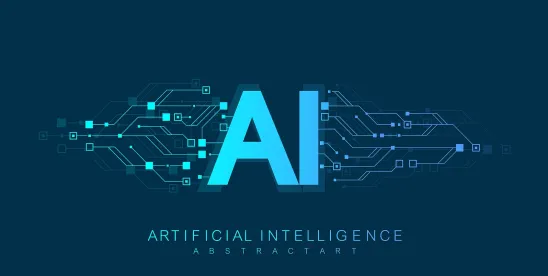“We’ve been sued” — words few want to hear. Being served with an unexpected lawsuit can throw your entire organization into disarray. Even expected litigation can leave you scrambling to figure out the next steps. Yet, these days litigation seems to be a cost of doing business. And, as with any expense, you strive to minimize those costs — whether financial or operational.
The goal? Resolve a dispute swiftly and in the most favorable, cost-effective way possible. The game plan? Analyze relevant law and facts to assess the merits of the claims and form an appropriate strategy, which often includes determining whether an early settlement is feasible. Artificial intelligence (AI) can help.
Knowledge: The Key to Successful Settlement
It’s no secret the vast majority of lawsuits eventually settle. But that often means settling on the eve of trial, only after the parties have engaged in prolonged — and expensive — discovery (as our colleagues recently discussed in greater detail). All things equal, most parties would prefer to resolve their disputes sooner, limiting the costs they incur. That doesn’t mean you should roll over and agree to the other side’s demands. Instead, to place yourself in the best position to negotiate, you need to understand your case — both its strengths, and, perhaps more importantly, its weaknesses. Otherwise, you risk coming to the bargaining table unprepared.
Marshaling and identifying key facts is therefore crucial, and you want to do it quickly. This, of course, requires ingesting and analyzing potentially large amounts of information. Fortunately, technology continues to make this easier than ever. Long gone are the days of unloading trucks of documents for teams of associates to scour page-by-page. For years, discovery has instead been characterized by varying forms of electronically stored information (ESI), like e-mails, Word documents, text messages, and business-related messaging applications. As ESI proliferated, so did the availability of technology-assisted review (TAR) software. While some variation of TAR can be adapted to virtually every case, significant training by attorneys is still required, and these systems ultimately do little to expedite the identification of “key” documents. Enter artificial intelligence.
Artificial Intelligence: The Document Super-Reviewer
AI tools now can transform what typically would be a few weeks of document review into, literally, just a few days. By feeding an AI program a “prompt” outlining the case’s key legal and factual issues, AI can process and analyze tens of thousands of documents overnight. Although it’s not quite as simple as flipping a switch, the time and cost advantages are enormous and provide a leg up in developing your litigation strategy and assessing potential settlement. The benefits of an AI program are amplified when implemented by experienced counsel who know how to write effective prompts and then manage and validate the results.
Foley has been on the forefront of implementing AI into high-stakes commercial litigation and can attest to its benefits firsthand. Just last year, for example, we were among the first firms to integrate Relativity’s new generative AI software, Relativity aiR, into our review platforms and deploy it in active litigation. There, our client found itself facing an expedited discovery schedule and the prospect of a truly business-altering injunction. Working in tandem with our highly skilled litigation support and discovery experts, we were able to quickly, and effectively, implement aiR into our case workflow. This expedited our document review processes and rapidly identified key documents, which we ultimately used to undermine the plaintiff’s case and negotiate a quick, favorable settlement.
And while it’s true we can use AI to help secure favorable settlements early in litigation, we are equipped to also wield it as a powerful tool throughout all phases of your case, even if a settlement doesn’t materialize or isn’t advisable. The benefits of AI include:
- Identification of Key Documents: AI tools can predict and identify documents crucial to the merits of your case. This includes helpful and harmful documents.
- Increased Efficiency: Instead of assembling a team of dozens of attorneys to review thousands of documents over the span of weeks or months, AI can be trained to rapidly analyze the same number of documents, potentially overnight.
- Increased Security: Rather than distributing and outsourcing large document reviews to third-party vendors, the review process is kept securely within the confines of your trusted outside counsel. Fewer eyes on documents means fewer confidentiality concerns.
- Lower Litigation Costs: Fewer attorneys reviewing documents leads to a lower bill. These savings can be reallocated to other aspects of case strategy or reinvested across other parts of your organization.
- Standardized Accuracy and Effectiveness: AI minimizes potential inconsistencies that are more common with large attorney review teams. For example, what constitutes a “key” document to one reviewer may be overlooked by another. Human error, as much as we try to avoid it, still happens. AI operates more objectively, treating similar documents consistently.
- Generation of Plain Language Document Summaries: Day-to-day business documents and correspondence can sometimes be challenging to follow, especially if they are full of unfamiliar technical jargon. AI can be used to generate high-level summaries of key documents or important issues in your case. These summaries are written in plain, readily accessible language, which facilitates seamless analysis and counseling.
- Reallocation of Attorney Resources: The less time (and money) spent on document review, the better (for attorneys and clients alike). This allows attorneys to spend more time reviewing and analyzing highly relevant information and developing successful case strategies.
- Enhanced Legal Research: Online legal research services, like the Westlaw and LexisNexis services used by Foley, also have embraced the power of AI. Attorneys can now input their research questions in everyday language, and the AI programs respond quickly with concise, well-reasoned answers with citations to supporting authorities.
Settling on Your Terms
Every litigator knows, notwithstanding that hundreds of thousands of documents may be produced in discovery, there often are only a handful of “key” or “hot” documents that actually drive a case’s outcome. With a properly implemented AI platform, parties can identify these documents quicker than ever before. Armed with this information, parties can take control over their lawsuit and implement successful litigation strategies, including effective settlement positions where appropriate.
For example, imagine you’ve been sued by a former employee for wrongful termination, but you found (through your AI platform) a series of documents that irrefutably show that the employee, in fact, willingly resigned to pursue other opportunities. You can now use those documents as the centerpiece of your settlement discussions and obtain a quick, satisfactory resolution without breaking the bank. Alternatively, imagine that you found “bad” documents that corroborated the plaintiff’s allegations. Rather than engage in prolonged discovery in a case that you are unlikely to win, you’re now able to pursue and secure a fair settlement that avoids unnecessary time and litigation expense.
Ultimately, the role of AI will continue to grow in all aspects of life and business. The legal industry is no exception, and litigants should embrace it. We have. By leveraging emerging AI technology, we can help your organization take control over its legal battles.
This article is one in a series dedicated to legal topics at the intersection of counseling and the courtroom. To read our last article, click here.





 />i
/>i

